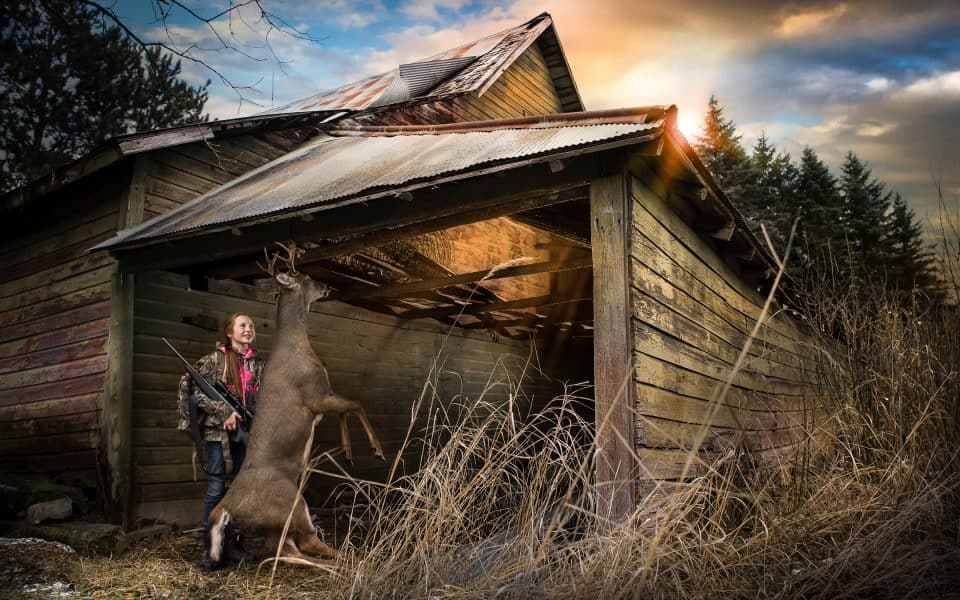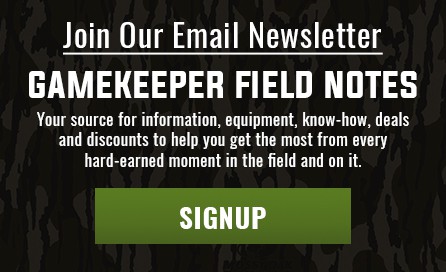For many Gamekeepers readers, hunting is, always has been, and always will be a way of life. Springtime wake up calls of black coffee and wild turkey gobbles quickly transition into chasing whitetails and other game with autumn’s arrival. Hundreds of years ago, hunting was no activity humans participated in for bragging rights, it was a necessary skill for survival. In fact, hunting has shaped some of Americas greatest icons and archetypes.
When speaking about Daniel Boone’s need for the forest, biographer W.H. Bogart said Boone “may have seen deep truths about himself revealed through the cleansing simplicity of the demands of survival.” I venture to guess you and I seek that same sort of rest and rehabilitation that Boone once did as he meandered the hills and rivers of Kentucky.
Today, too many Americans rely on the industrial food system and have minimal connection to the land or animals roaming it. Aldo Leopold had profound words to say about this during his 1965 publishing of A Sand County Almanac. He said, “There are two spiritual dangers in not owning a farm. One is the danger of supposing that breakfast comes from the grocery, and the other that heat comes from the furnace.” We might not all have the ability to own land, but we can all find creative ways to connect with nature and hunting if we put forth effort.
Hunting has deep ties to American heritage and is engrained into many of our traditions. Let’s dive into why we feel a need to hunt, why some don’t, and how we can protect our pastime and ensure we keep traditions alive for future generations.
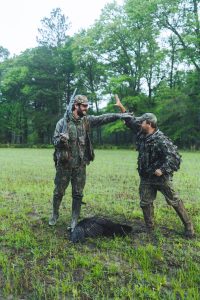
Mossy Oak
Why Do We Hunt?
In the year 2024, people hunt for a variety of reasons. Some of which didn’t exist just ten or twenty years ago. Evolving modern mindsets warrant new ideas, laws, and regulations. By the 19th century, many hunters were beginning to realize big game populations were dwindling. With that realization came the ban of market hunting, or the selling of wild meat. Times have changed.
Now, hunters take to the field to provide their families with meat and refresh their soul, while others hunt to appease their own desires for accomplishment, challenge or even bragging rights. Some might hunt for the approval of others on social media. An entirely different type of hunter might hunt for 50 years without ever bragging to anyone about their game harvests. The reasons we hunt are numerous and sometimes difficult to pinpoint.
Lyndsey Braun, Co-Founder of Sharing the Land, hasn’t always been a hunter but felt a change was needed after relying too heavily on the industrial food system. She said “I craved a deeper connection with nature and wild food. This deeper comprehension of our connection with nature and the importance of harmonious living has shaped my perspective and my decision to become a hunter.” As we age, our motivations for engaging in certain activities change. Lyndsey’s motives are a perfect example.
When I was a young twelve-year-old stomping through the cold Wisconsin deer woods on the opening day of the traditional nine-day rifle hunt, I hunted because it was tradition, and just one of those things you did as a 90’s kid in rural Wisconsin.
At 20 years old, my hunting motivations were drastically different than at age twelve. At 35 years old, I now hunt to watch the world around me wake up, chase hard-to-kill animals in search of pleasing my rewards system, to protect and manage habitat, and to fill the freezer.
Drury Outdoors DeerCast Editor-in-Chief and lifetime hunter, Jim Richman said “First, and most basically, I hunt because I physically can, and I have the opportunity. As much as I’d like to jump into a more sentimental reason first, at the end of the day, we never really know how many more hunts we have. I could go on about the physical, spiritual, and psychological benefits of tapping into primal human instincts — for me, those are a cross section of the bigger picture blessings of hunting.”
One danger of today’s hunting society is using hunting and the outdoors as a boost to your ego. I’m talking about the negative, comparison-game social media type of ego boost we all seem to like these days – especially the younger generation like myself. I’ll admit, it feels great hitting send on an Instagram or Facebook post of me posing with a buck.
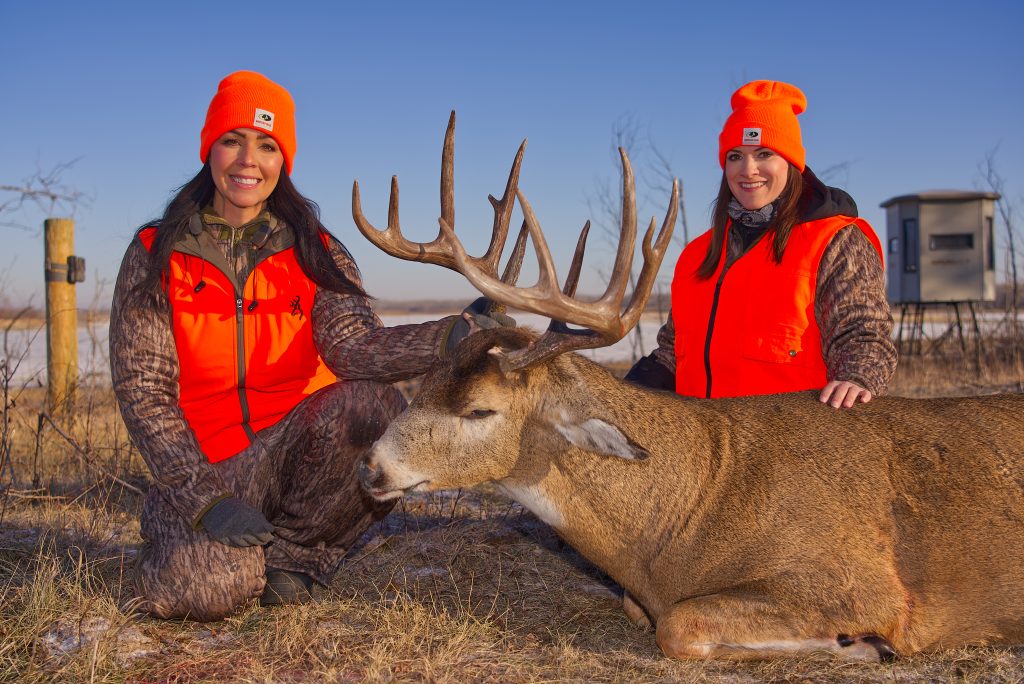
Mossy Oak
The danger with social media is that not everyone will celebrate your hunt or approve of the animal you shot. This can lead some to quit hunting, stop sharing their hunting experiences with others, and even go so far as to cause mental health issues. We all know the dangers of social media, and sharing your hunting experiences online is no different!
Social media can also be a game-changer for how we portray hunting. Lance Krueger is a world-renowned wildlife photographer and told me as hunters “We can show hunting as a fun activity on our social media, and that it’s about the experience, rather than just the kill. If you do show any photos of any animals you kill, first clean them up, stick their tongues back in their mouth, and put the animal in a photogenic spot before you take respectful photos of it.”
If posting your buck or other big game animal to Instagram or Facebook is what gives you the only dopamine hit throughout the entire hunting process, there could be a problem with your hunting priorities. Ask yourself this; if you didn’t post this animal kill photo to social media, would you still feel a massive sense of pride and accomplishment? We can’t let our “why” become reliant on the approval of others.
Why Some Don’t Hunt
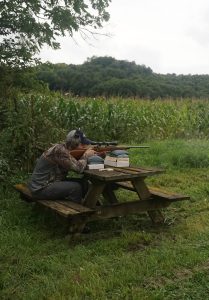
Paul Annear
It wasn’t until I had three children that I realized hunting is a selfish sport unless you’re sharing time in the field with loved ones. Hunting for a big game animal takes patience and above all, time. And a lot of it. A certain group of people simply don’t have the time or patience required to hunt. We live in a “need-it-now” world, and if you ask me, we’re losing hunters in part due to this rushed, modern mindset.
In 2022, only 10 percent of Michigan deer hunting license buyers were younger than 18 years of age. The average age was 45. A variety of activities are simultaneously fighting for our time, and hunting is seeing fewer young people enjoy the sport. As the baby boomer generation ages, it’s likely we will see an even further dive in hunter participation numbers in the next ten to twenty years. Just as an example, Wisconsin lost 65,000 deer hunters from 2005 up until 2022.
An entirely different group believes hunting is just plain wrong. Dr. Marc Bekoff is professor emeritus of Ecology and Evolutionary Biology at the University of Colorado-Boulder and told me in an email “I think that many, if not most, humans, deep down think and feel it’s wrong to take the life of another individual. I know hunters who feel great dissonance or conflict when they go out to hunt, even for needed food, but somehow, they override their uncertainty by saying they’re doing it ethically. When we talk about it, I see where they’re coming from but regardless, they know they’re taking a life when they don’t really need to.”
Professor Bekoff has referred to former vegans as “born-again carnivores.” When I asked Lyndsey Braun why some people don’t hunt, she said, “It often traces back to a lack of understanding of our “why,” or not having the same opportunities to develop connections to nature.”
I asked Professor Bekoff why he thinks killing an animal is an emotional event and he said, “I’ve read that some hunters like feeling part of nature, but of course, this is a bit overblown since they’re using methods for which their prey haven’t evolved any natural responses.”
Jim Richman told me, “Many of those who are militantly against hunting have built their convictions on marketing efforts and within thought vacuums, rather than from personal experience and sound education. Potent anti-hunting propaganda and weakening cultural popularity is a perfect storm for a large-scale diminishing desire to hunt.”
In other cases, there are people living all over America who are stuck in the daily grind of living deep in the heart of big cities and just don’t have access or mentors near them to introduce them to hunting. According to the National Deer Association’s 2023 Deer Report, only three out of 13 states in the Northeast U.S. offer a formal private land hunting access program. Overall, twenty-seven U.S. states offer a formal private land hunting access program, but most are found in the Midwest or western portions of America.
Lance Krueger told me lack of hunting land access is “one of the main reasons I went into wildlife photography. I was born and raised in the state of Texas where most of the land is privately owned and it was far too expensive for my parents.”
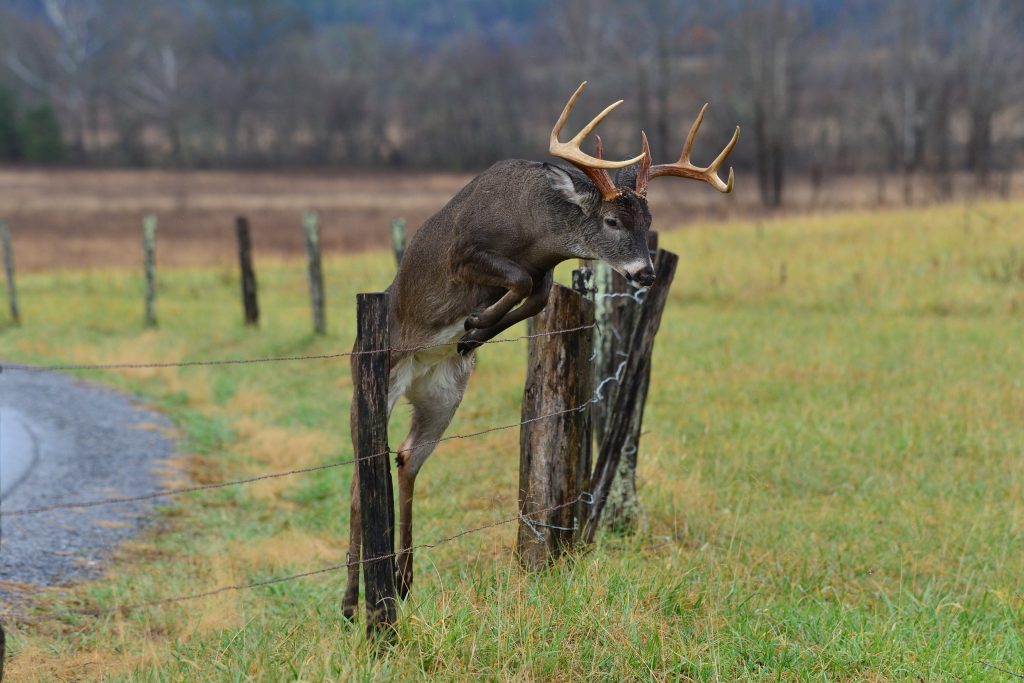
Paul Winterman
In other instances, hunters on TV and media put a terrible taste in the mouths of non-hunters and anti-hunters alike. Lyndsey Braun feels a responsibility to be different. Braun told me she has experienced being called a “heartless killer” by people who are uneducated or unwilling to listen, but one particular success story stands out to her. “A past client of mine was raised in New York City, and throughout college he became a vegetarian and anti-hunter, aiming to raise awareness about animal rights. It wasn’t until our friendship grew and he learned about my lifestyle choices that he began to re-think his views on hunting – he observed how I work with my land and food. He no longer judges hunters like he once did, and he attributes this change to watching my actions.”
A Gamekeeper’s Mentality
Protecting our pastime of hunting and watching over the land should be paramount. As a dedicated hunter, I fall victim to being a selfish hunter from time to time – only being concerned with my own hunting adventures and what I can do on my hunting parcel.
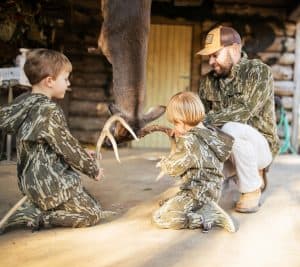
Mossy Oak
We need to have a vision for the long-haul and understand that your family’s future hunting experience, or lack thereof, is dependent on you! We are losing hunters and need mentors to get the next generation hooked on managing habitat, protecting and defending sensitive landscapes, and providing their own meat.
At times, a dedicated, intentional effort through a non-profit hunting organization is necessary, but a lot of times it’s about how we carry ourselves that will make or break non-hunters’ views regarding hunting. Krueger said, “I share the “good news” of hunting whenever I introduce myself to someone new, or when they find out what I do for a living in the national hunting or fishing magazines. We can speak positively about hunting to whoever we meet – in person or on social media.”
To continue a legacy of something, it requires knowledge. Who will continue our legacy of hunting and the outdoors if no one teaches them? Richman finished by telling me, “My grandpa, even though he was never able to stay out in the woods very long with me, put fuel to my fire by making sure we stayed focused from the pre-season all the way through the final sunset. We hunted, and it didn’t matter if it was squirrels, turkeys, or deer. That was our tradition.”
If you were never taught how to change a flat tire as a teenager, it’s likely you had to call on someone at age 17 when it first happened. You don’t know what you don’t know. We need to be there to educate the next generation and provide the knowledge necessary to continue our hunting traditions.
Lyndsey Braun said, “Hunting and conservation are not just a set of practices but a philosophy — a way of life that encompasses our entire being. It shifts the boundaries of individual interests and ego, emphasizing the interconnectedness of all living beings and the environments we inhabit.”
Join our weekly newsletter or subscribe to GameKeepers Magazine.
Your source for information, equipment, know-how, deals and discounts to help you get the most from every hard-earned moment in the field.

